ADRIAN SEVERIN: AMERICA SE PREGĂTEȘTE SĂ AVANTAJEZE RUSIA ÎN EUROPA, DAR CU PREȚUL TRĂDĂRII CHINEI DE CĂTRE RUȘI
SIMT LIPSA UNEI ORDINI MONDIALE UNDE ACTORII IMPORTANȚI ÎȘI BAZEAZĂ AUTORITATEA PE INTELIGENȚĂ ȘI NU PE FORȚĂ BRUTĂ.
SIMT LIPSA UNEI ORDINI MONDIALE UNDE ACTORII IMPORTANȚI ÎȘI BAZEAZĂ AUTORITATEA PE INTELIGENȚĂ ȘI NU PE FORȚĂ BRUTĂ.
Fostul ministru de Externe Adrian Severin a publicat în DCnews câteva observații despre summitul de la Geneva unde se vor întâlni președintele Rusiei și președintele SUA.

Russian jets shelled a camp for the Turkish-backed Syrian National Army in Afrin, north of Aleppo, and intensified its airstrikes against the areas controlled by Hayat Tahrir al-Sham in Idlib ahead of the meeting between the Turkish and Russian presidents on Sept. 29.
Sources affiliated with the Syrian opposition’s so-called National Army, formerly known as the Free Syrian Army (FSA), told Al-Monitor that Russian jets launched several air raids on Sept. 26. The raids hit a military base of Al-Hamza Division, a group affiliated with the National Army, in the village of Barad in Afrin in the northern countryside of Aleppo.
Russian Foreign Minister Sergei Lavrov says the military junta in Mali has turned to “private Russian companies” for help in its fight against Islamist insurgents in the Western African country.
“This is activity which has been carried out on a legitimate basis,” Lavrov said during a press conference at the United Nations headquarters in New York on September 25. “We have nothing to do with that.”
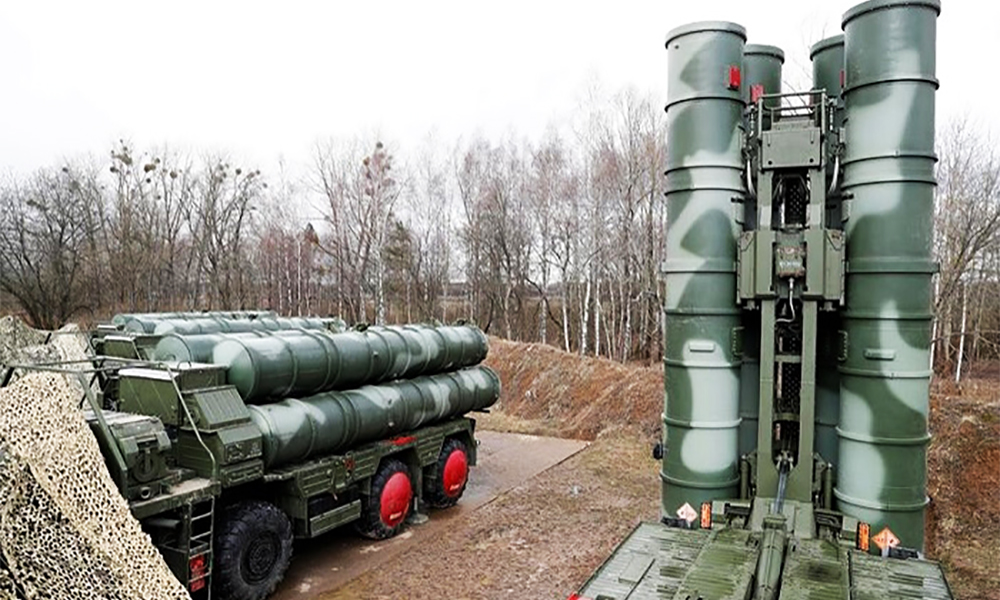
President Tayyip Erdogan said Turkey still intended to buy a second batch of S-400 missile defense systems from Russia, a move that could deepen a rift with NATO ally Washington and trigger new U.S. sanctions, Reuters reported.
According to the report Washington says the S-400s pose a threat to its F-35 fighter jets and to NATO’s broader defense systems. Turkey says it was unable to procure air defense systems from any NATO ally on satisfactory terms.
“In the future, nobody will be able to interfere in terms of what kind of defense systems we acquire, from which country at what level,” Erdogan said in an interview that aired on CBS News’ “Face the Nation” on Sunday.
“Nobody can interfere with that. We are the only ones to make such decisions.”
The United States imposed sanctions on Turkey’s Defense Industry Directorate, its chief, Ismail Demir, and three other employees in December following the country’s acquisition of a first batch of S-400s, Reuters said.
Talks continued between Russia and Turkey about the delivery of a second batch, which Washington has repeatedly said would almost certainly trigger new sanctions.
“We urge Turkey at every level and opportunity not to retain the S-400 system and to refrain from purchasing any additional Russian military equipment,” said a State Department spokesperson when asked about Erdogan’s comments.
“We continue to make clear to Turkey that any significant new Russian arms purchases would risk triggering CAATSA 231 sanctions separate from and in addition to those imposed in December 2020,” the spokesperson added, referring to the 2017 Countering America’s Adversaries Through Sanctions Act.
The spokesperson also said the United States regards Turkey as an ally and friend and seeks ways to strengthen their partnership “even when we disagree.”
Erdogan will meet with President Vladimir Putin in Russia on Wednesday to discuss issues including the violence in northwestern Syria, read the report.
Erdogan also said that U.S. President Joe Biden never raised the issue of Turkey’s human rights track record, seen as extremely troublesome by international rights advocacy groups, confirming Reuters reporting from earlier in September.
Asked whether Biden brought up the issue during their June meeting on the sidelines of a NATO summit in Brussels, Erdogan said: “No he didn’t. And because we don’t have any problems of that nature in terms of freedoms, Turkey is incomparably free.”
Turkey is among the top jailers of journalists, according to figures from the Committee to Protect Journalists (CPJ), while Human Rights Watch says Erdogan’s authoritarian rule has been consolidated by the passage of legislation that contravenes international human rights obligations, Reuters reported.
The top U.S. military officer says the United States should explore ways to expand its military contacts with Russia as a way to increase trust and avoid a miscalculation.
Army General Mark Milley, chairman of the Joint Chiefs of Staff, said allowing things such as observers at each other’s combat exercises would increase transparency and reduce the risk of conflict.
“We need to put in place policies and procedures to make sure that we increase certainty, to reduce uncertainty, increase trust to reduce distrust, increase stability to reduce instability in order to avoid miscalculation, and reduce the possibility of great power war,” Milley said. “That’s a fundamental thing that we should try to do, and I am going to try to do it.”
Milley made the comments on September 23 after meeting his Russian counterpart, General Valery Gerasimov, chief of the Russian General Staff, in Finland on September 22.
Milley said that military contacts between the two powers currently are largely limited to senior leaders such as the defense secretary, the chairman of the Joint Chiefs of Staff, and the supreme allied commander for Europe.
But he said allowing military service chiefs to form stronger relationships with their Russian counterparts and allowing observers at exercises are ideas worth exploring.
Milley, who spoke with an AP reporter and one other reporter traveling with him back to the United States, declined to detail the contents of his talks with Gerasimov, but a statement from the Joint Chiefs of Staff suggested that more open communication was discussed.
“The meeting was a continuation of talks aimed at improving military leadership communication between the two nations for the purposes of risk reduction and operational deconfliction,” the statement said.
Milley said that military-to-military contacts with Russia have worked in the past to de-escalate tense situations. Without being specific, he said there were “a couple of incidents that occurred between us and the Russians over the last two years” that triggered calls between Milley and Gerasimov.
The U.S. and Russia increased cooperation on nuclear security and other defense issues after the end of the Cold War, but the relationship deteriorated after Russia and Georgia fought a brief war in 2008 and Russian troops remained in Georgia’s regions of South Ossetia and Abkhazia. Tensions spiked again in 2014 when Russia annexed Ukraine’s Crimean Peninsula and its military intervened in eastern Ukraine.
In response to the invasion of Crimea, Congress in 2016 limited cooperation with Russia, prohibiting “military-to-military cooperation” until Russia ends its “occupation of Ukrainian territory” and “aggressive activities.” The law was later amended to say that it does not limit military talks aimed at “reducing the risk of conflict.”
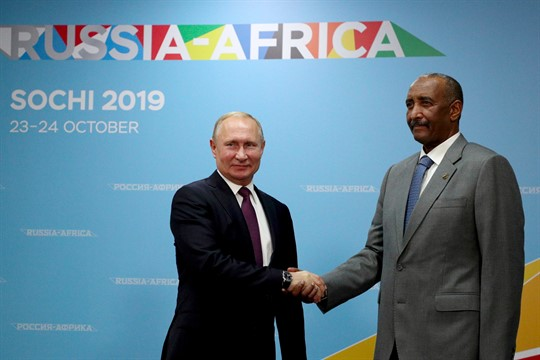
Following Russian Prime Minister Mikhail Mishustin’s approval last month of a new naval base to be built on Sudan’s Red Sea coast, official Kremlin statements have billed the facility as a logistics center that will be defensive in nature—for principal use as a resupply station for Russian warships.
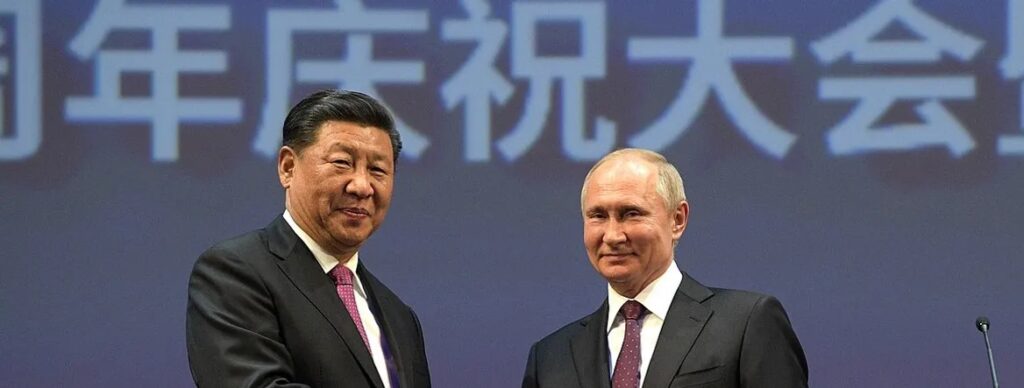
This Emerging Insights paper analyses Moscow’s ambitions for its ‘pivot to the East’, assesses its progress and evaluates the impact of the Indo-Pacific concept on Russian strategy.
Russia’s ‘turn to the East’ (povorot na vostok) has been underway for around a decade. Before 2014, the ‘Pivot’ was principally concerned with exploiting the rapid economic growth in Asia. But events in 2014 gave it a more explicit geopolitical rationale. As relations with the Euro-Atlantic community deteriorated following Russia’s annexation of Crimea and the outbreak of hostilities in southeastern Ukraine, Moscow’s need to diversify its foreign relations became urgent. The Pivot was suddenly as much away from the West as it was towards the Asia-Pacific. The Russian leadership emphasised the importance of using the Pivot to both improve Russia’s geopolitical position and stimulate the development of Russia’s Far East (RFE) and other resource-rich regions, such as Siberia and the Arctic.
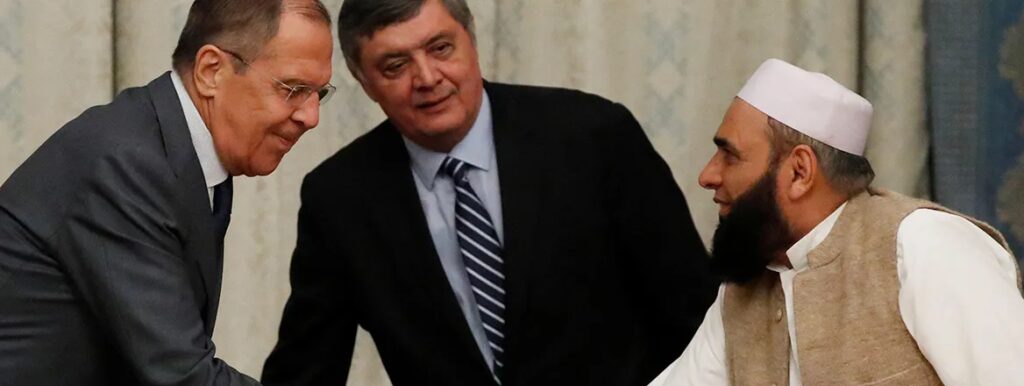
Russia’s cautious accommodation of the Taliban shows it will likely combine diplomacy with deterrence in the coming months.
Since Afghan President Ashraf Ghani fled Kabul on 15 August, Russia has cautiously accommodated the Taliban’s seizure of power. Diplomats, such as Russian Ambassador to Afghanistan Dmitry Zhirnov and President Vladimir Putin’s envoy to Afghanistan Zamir Kabulov, have praised the Taliban’s contributions to security in Kabul and the struggle against Islamic State-Khorasan Province (ISIS-K). While Russia has no immediate plans to afford diplomatic recognition to the Islamic Emirate of Afghanistan, Putin recently stated that Moscow will engage with the Taliban as soon as it ‘enters the family of civilized people’.
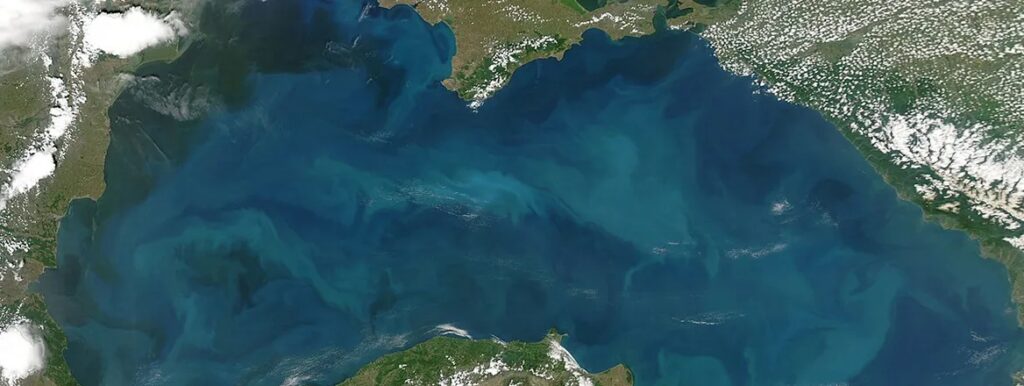
With Russia increasing its efforts to divert the transit of natural gas via the new TurkStream corridor, the Black Sea’s littoral states must take coordinated action to reduce energy supply risks.
Ukraine’s Crimea Platform, an international platform launched last month to coincide with the 30th anniversary of the country’s independence, is designed to return international attention to Russia’s unlawful seizing of the peninsula in 2014 and the human rights abuses perpetrated by the occupying authorities.